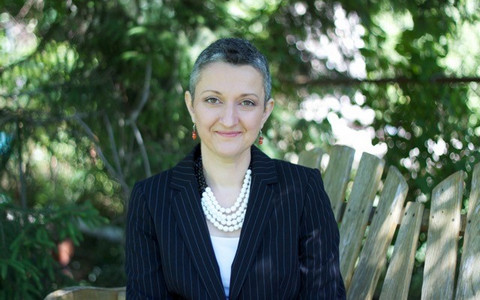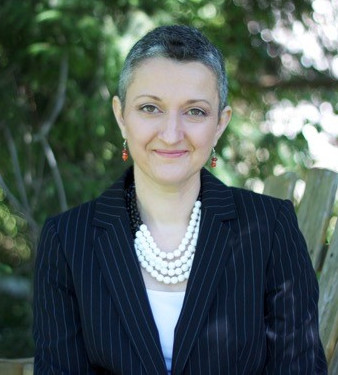
Dr. Burdette discusses growth of behavioral health programs in PBN interview
The following interview with Dr. Nelly Burdette was featured in the December 21st issue of Providence Business News.  Dr. Nelly Burdette, associate vice president of integrated behavioral health at The Providence Community Health Centers Inc., was the sole employee in the behavioral health program when PCHC launched it five years ago.
Dr. Nelly Burdette, associate vice president of integrated behavioral health at The Providence Community Health Centers Inc., was the sole employee in the behavioral health program when PCHC launched it five years ago.
Today, the program is staffed by nearly 20 clinicians. Burdette discusses its growth, the effect of the COVID-19 pandemic on mental health needs and her take on what role telehealth is likely to play in behavioral health treatment in the future.
PBN: How has the behavioral health program at Providence Community Health Centers changed since it was created five years ago with you as the sole doctor?
BURDETTE: When I began the Integrated Behavioral Health Program, it was just me trying to meet with all of the patients who wanted and needed the service, while also trying to create the program from the ground up. With over 60,000 patients and an overwhelming response to the service initially, it quickly became clear that integrated behavioral health was a critical necessity to our growth.
Today, we have 20 staff across our eight largest health centers in a variety of behavioral health disciplines. The past three years, we have been awarded for the National Committee for Quality Assurance’s Behavioral Health Distinction, the gold standard for providing the highest level of integrated behavioral health in the country.
We have created community collaborations that bring new and exciting options into the health centers such as acupuncture, housing services, medical legal partnerships, and both Rhode Island College and University of Rhode Island as student-training sites. Next up is the launch of an innovative multidisciplinary oncology survivorship treatment clinic in partnership with Roger Williams Cancer Center, starting in early 2021.
PBN: Roughly how many patients are cared for by PCHC’s behavioral health program, and what types of treatment does it offer?
BURDETTE: Integrated behavioral health embedded within primary care is a defining feature of PCHC’s approach to serving our population from a holistic perspective. In the health center setting, this care is a short-term, solutions-based treatment for patients across all ages who have mild to moderate mental health and substance use issues that would benefit from a different approach than specialty mental health therapy.
In 2016 – our first full year – we had more than 3,800 patient visits. We have steadily grown the number of patient visits every year since. In 2019, we had more than 9,000 patient visits and this year, we are already 1,000 visits ahead of that pace. We expect that growth to continue as the need for these services increases.
PBN: What sort of effect have you seen the COVID-19 health crisis have on mental health needs in Rhode Island, and are more patients coming to you for care?
BURDETTE: The COVID pandemic has exposed the underlying mental health and substance use epidemic that has been growing for years in our state. All PCHC patients over the age of 18 are screened for depression, anxiety and substance use. Anxiety in adults has seen the largest clinical increase across all sites since the pandemic began.
For children, needs have arisen around the intersection of this new approach to schooling and their home lives. A number of our school-age patients lack access to computers and the internet, and may have a home life situation that was already unstable prior to the pandemic. There has been a considerable increase in demand for behavioral health services in our integrated primary care settings and we have met that demand largely through our rapid adoption of telehealth.
PBN: Are you and other doctors at the behavioral health center continuing to see patients via telehealth because of the pandemic, or have you begun in-person visits again?
BURDETTE: While we started to see behavioral health patients via telehealth due to the pandemic, we have mostly remained on-site while doing so. We anticipate continuing to provide tele-integrated behavioral health after the pandemic is more under control. Frankly, many patients and providers prefer the telehealth service for the ease and access it opens up. We are now able to easily connect with our patients during their breaks at work or from their homes, without exposing them to heightened risks of in-person visits or struggling to consider how to arrange for and manage transportation and/or requesting time off from work.
We were very fortunate to have also received a grant from the Rhode Island Foundation that allowed us to continue to waive all integrated behavioral telehealth copays for our uninsured patients who use a sliding scale option.
PBN: Have you found telehealth to be just as effective as in-person visits for behavioral and mental health issues?
BURDETTE: For PCHC, integrated behavioral telehealth is often an improvement to an in-person visit, as it allows the patient more flexibility in their schedule. Telehealth also allows providers a glimpse into the homes and lives of patients in a different way than an office visit. However, we have found that for children under the age of 10 and elderly patients over the age of 65, there can be a limited knowledge base and comfort with telehealth that makes an in-person visit preferable.
There have been issues related to telehealth like internet connectivity, technological literacy of providers and patients, and the need for a safe and private location for patients to speak. Much of the research in this field, however, has found telehealth to be as effective for mental health and substance use as in-person care.

